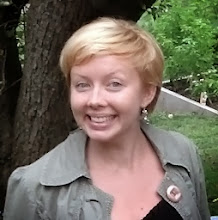 When I first arrived at my post, my official Togolese counterpart was an officer for one of the local microfinance institutions (MFI). I quickly identified opportunities to improve their performance. However, I soon learned that this region-wide MFI was about to be restructured. During this process, the director from the capital decided to consolidate the MFI's resources and shut down the smaller branches surrounding Kaboli.
When I first arrived at my post, my official Togolese counterpart was an officer for one of the local microfinance institutions (MFI). I quickly identified opportunities to improve their performance. However, I soon learned that this region-wide MFI was about to be restructured. During this process, the director from the capital decided to consolidate the MFI's resources and shut down the smaller branches surrounding Kaboli.As these branches closed, the citizens of these smaller villages were further discouraged from participating in a more formal banking system. Many villagers already find it difficult to justify spending 2500 CFA (approximately $5) to open a savings account. So in order to encourage local savings and credit options among sceptical villagers, I introduced the idea of a Village Savings and Loan Association.
At weekly or monthly meetings, a group of 10 to 30 members meet to save money. The group they uses these pooled funds to offer short-term loans to its members at small monthly fee. The system increases the members' access to credit and introduces them to a more formalized system of financial management.
The system applies the principles of trust and memorization. The members are usually already familiar with each other, which encourages a strong foundation for the group. For instance, the first group that I worked with was a group of women that had been buying and re-selling okra together for several years. The system, therefore, allowed them to build a better structure for managing their money. Further, they already had strong financial ties and were comfortable loaning money to each other.When introducing a group to the system, some potential members are nervous about being illiterate. However, the system is based on collective memory
 instead of written documents. At the beginning of each meeting, all members announce how much money they believe is in their lock-box based on the previous meeting's count. The treasurer then confirms this amount. After concluding financial transaction for that meeting, the new total is announced.While the meetings require a lot of time and patience, the members really appreciate hearing their weekly or monthly savings rise. Also, we try to end each meeting with a snack or tchouk (the local brew) or even some dancing ..
instead of written documents. At the beginning of each meeting, all members announce how much money they believe is in their lock-box based on the previous meeting's count. The treasurer then confirms this amount. After concluding financial transaction for that meeting, the new total is announced.While the meetings require a lot of time and patience, the members really appreciate hearing their weekly or monthly savings rise. Also, we try to end each meeting with a snack or tchouk (the local brew) or even some dancing ..


